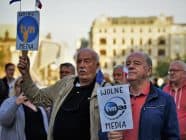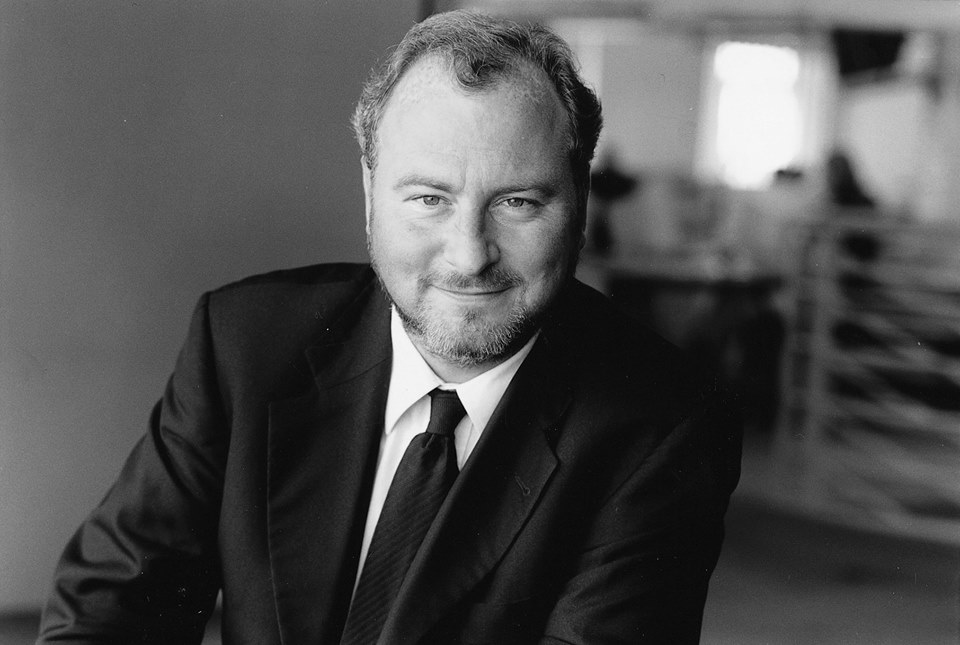On a rather ordinary June day in 2010 a news item appeared on Ynet, Israel’s most popular news website. The headline read “Who Are You, Mister X? ‘The Prisoner With No Name And Identity’.” Quoting an unnamed source in Israel’s Prison Service, the report told of a man whose identity is unknown to the prison staff held in a special cell in a maximum-security jail with unspecified charges. “There’s too much secrecy around him,” the report quoted the source. “What’s scary is that a man in the year 2010 is jailed in Israel without us even knowing who this is.”
Shortly after being published – possibly within the hour – the report was removed. Speculations flourished, several MPs and one human rights organization appealed to state officials for clarification of the case, and a number of international media outlets also picked up the story. A few days later, a comprehensive gag order was issued to ensure that Israeli media did not pursue the story. Moreover, a clause in the gag order stated that even mentioning the existence of the order was prohibited.
The case sparked a national debate about Israel’s attitudes to press and to censorship. It also raised questions about just how far national regulators and censors should try to limit what is published in any particular country when foreign media are reporting on the same story.
An Australian connection
In February 2013, nearly three years later, Australia’s ABC News aired an investigative documentary titled “Prisoner X – The Australian Connection.” After opening with Ynet‘s mysterious news report, the documentary described the extraordinary confinement of Ben Zygier, or “Mr. X”, an Australian Jew who lived in Israel and worked as a Mossad agent before eventually committing suicide in his prison cell.
Nearly all Israeli news websites instantly reported details from the documentary, but again these reports were quickly removed. Facebook, Twitter, and the blogosphere however were teeming with pieces of information, speculation, and of course opinions on the details of the case and its subsequent censorship. International media also carried extensive reports about the documentary, as well as Israel’s heavy-handed response to its release.
A few hours later, the English language, Israeli based Haaretz news site ran a brief headline report signed by editor-in-chief Aluf Benn saying the Prime Minister’s Office had summoned the Editors Committee. The Committee, made up of chief editors and owners of the country’s media outlets, was established in the 1940s to allow the Prime Minister or other high ranking officials to brief top representatives from the press about what the Israeli security apparatus considered to be highly sensitive information.”[The] purpose of [the] unusual meeting was to request editors’ cooperation in preventing publication of [the] affair which could prove embarrassing to government agenc[ies],” Haaretz reported.
Twenty-four hours later, the media blackout was gradually lifted. “I don’t want to know more than my readers,” Benn later wrote in an op-ed to The Guardian, explaining his refusal to participate in the editors meeting. “If [Tamir Pardo, head of the Mossad] wants to explain, he should talk to the public, not turn editors into intelligence ‘assets'”.
Press Council President Dorner voiced similar criticism. “Self-censorship is something that cannot be acceptable nowadays. I thought the Editors Committee no longer exist[ed]. I was surprised, negatively,” she said on public broadcast radio.
Critics later argued that the complete blackout imposed on Israeli media outlets by a blanket gag order was both outdated and counterproductive. The intended purpose of state censorship is to prevent information that could compromise national security from reaching hostile entities inside and mainly outside of the country. But, as Dorner and others have pointed out, this very case proved the futility of such a measure when media elsewhere in the world were reporting the case. “This is passé and pathetic,” former head of the Mossad Danny Yatom told daily newspaper Maariv, “and the fact is that they understood it themselves and one day after the affair was published around the world it was published here as well.”
Military censorship and gag orders
Censorship is always a thorny issue. In a country that sees itself facing a constant and existential threat, any information that can be interpreted as a challenge to national security becomes highly contentious. A military censor is therefore tasked with ensuring that media in Israel do not disseminate information that has the potential to compromise national security.
In a 2009 study, Israeli journalists ranked the military censor third (after the editor and the news organization’s legal consuls) among factors they considered to be inhibiting their professional freedom.
Contrary to conventional wisdom, the relationship that has evolved between the Israeli media and the military censor is not one of oppression. Through the years, the working relationship between the media and the censor has been streamlined. As a result of both court rulings and mutual agreements, journalists describe a working relationship with their censorship counterparts. “The 35 military censors are not faceless, inaccessible bureaucrats who work behind walls,” Benn wrote in an op-ed. “You know them personally and you can negotiate the wording to let the story pass.”
Moreover, journalists today tend to submit materials for review only if they fall under an agreed-upon list of “sensitive topics.” At the same time, in line with court rulings, the censor’s working principle is only to disapprove information that could clearly pose “imminent and immediate danger” to national security if published.
Many officials, including former Supreme Court justice and current President of Israel’s Press Council Dalia Dorner, have argued that having materials vetted by censors prior to their publication effectively relieves the journalist of legal responsibility. (In the case of Haaretz reporter Uri Blau, however, a censor’s prepublication approval did not prevent his persecution). Paradoxically, several media scholars conclude that the military censor has become imperative in protecting freedom of the press in Israel.
However a few cases in recent years, most notably that of Prisoner X, have raised serious doubts about the censor’s role.
To censor or not to censor?
In early March, in a panel session at Bar Ilan University dedicated to press freedom in light of the Prisoner X affair, chief censor Brigadier General Sima Vaknin-Gil acknowledged, “censorship and democracy do not go hand in hand.” However, later she stressed that she would not take freedom of expression into consideration or the public’s right to know, “in any instance where a person is sent secretly, or in any other way, at the service of the state.”
Occasionally, Israeli journalists do admit, or even approve of practicing self-censorship. In 1982, at the outset of the first Israel-Lebanon war, an op-ed in the widely read daily newspaper Yedioth Ahronoth called on journalists and the public to avoid criticizing the government during wartime. The column’s title, “Silence, We’re Shooting,” became a maxim.
Speaking at the Bar Ilan University panel, the Israeli public broadcast radio’s longtime military correspondent Carmela Menashe acknowledged the common practice of self-censorship. “This hug [journalists] get from the defense minister or the chief of staff, who sit[s] with them and eat[s] with them, encourages some of them to censor themselves and not print things,” The Jerusalem Post quoted her as saying.
According to data from the military censor unit published in The Seventh Eye journal in March 2012, Israeli journalists tend to voluntarily employ stricter censorship than that of the institution. The information showed that between 2002 and 2011, censors intervened in 17 to 20 percent of the texts the media submitted annually (with the exception of 2004 where the rate stood at 25 percent). During the second Israel-Lebanon war in 2006, the intervention rate reached between 30 and 24 percent. In other words, the vast majority of news materials submitted for censor review were not necessarily because they contained sensitive information, but simply because journalists preferred to shift responsibility to the authorities.
The public interest test
Yet, despite Prisoner X being a highly unusual case, it was hardly unprecedented – neither in the way state authorities handled the person at the center of the row, nor in the way they dealt with its coverage in the media.
In Israeli society today, the de facto preponderance of immediate national security threats means that any criticism of Israel’s defense apparatus is considered a threat to national security, even if there is little to suggest such a risk. There is no way to generalize, but free press does not seem to be as readily associated with the public interest as national security is — among journalists and the public in general.
Therefore, perhaps more worrying than the institutional and legal instruments that once enabled censorship are the multiple forms of self-censorship – or rather, a genuine and understandable fear of the possible consequences of confronting authorities – that are deeply ingrained in the journalistic practices and conventions of the Israeli media. For media outlets (and public discourse in general) who fame themselves as being particularly critical this is a peculiar situation. But one has to consider where public discontent is effectively channeled.
Calls to scrap the military censor unit altogether have been scarce. Suggestions for reforming it – for instance, by moving the unit to the Prime Minister’s Office, or exploring other alternatives has been even more rare. “As long as ‘state security’ is sacred in the public mind, we will have censorship,” Haaretz‘s Aluf Benn concluded.
Moreover, abolishing institutional state censorship is unlikely to improve press freedom, since self-censorship among journalists and media outlets hesitant to take risks could become even more common. Nevertheless, self-regulation and adherence to professional values would be much better than legal regulation and official censorship. And here is the bottom line: self-regulation, when dealing with issues that could potentially challenge national security, must be weighed against the public interest.
The common assumption that the public interest and national security are always one and the same simply doesn’t hold water. Israel has already seen several cases over the years – not only the Prisoner X story, the Uri Blau case, or the milder experience of blogger Eishton – where censorship or persecution have been invoked essentially as kneejerk reactions in a bid to save face for the state itself, rather than state security.
Article translated from the original Polish ‘Więzień X i wolność mediów w Izraelu’.
Photo credits: RubyGoes / Flickr CC
Tags: Censorship, Freedom of the Press, Israel, Media Censorship, Middle East, Mossad, Press freedom, Prisoner X














































